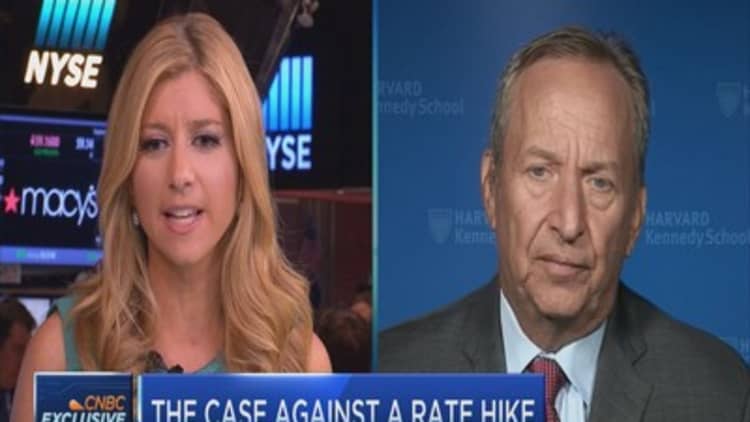
If the Federal Reserve raises interest rates for the first time since June 2006, then investors said they would make significant changes to their portfolios, according to a survey from Wells Fargo and Gallup.
Forty-four percent of investors are prepared to make "major adjustments" to their portfolio if interest rates rise, the survey found.
What kind of adjustments? Thirty percent of the investors surveyed said they plan to buy more stocks, while only 8 percent said they would reduce their stock holdings. Nearly a quarter (23 percent) of those surveyed said they would buy bonds, whereas 10 percent they would sell fixed income investments. Wells Fargo and Gallup polled 1,006 investors from Aug. 7 to Aug. 16 for the survey.
Investors should remain calm regardless of rising rates, financial advisors say.
"I encourage my clients to keep their portfolios the same in good times as in bad ones, with some minor adjustments as needed," said David Mullins, a financial advisor in Richlands, Virginia. "I don't see any real need for major changes when interest rates go up."
Investors should also refrain from making investment decisions based solely on the central bank's decision, Mullins said. "When you start reacting to headlines, that's a hard game to play. You get into timing the market," he said.
It is critical for investors to understand how the assets they are holding perform if rates do rise, said Howard Pressman, a certified financial planner at Egan, Berger & Weiner in Vienna, Virginia.
For example, bond prices fall when interest rates go up. "Folks who loaded up on long-term bonds could get hurt the worst as interest rates climb," Pressman said.
Fixed income investors could benefit from building a bond ladder, Mullins said. The strategy prevents investors from locking up their money for long periods of time when interest rates are so low and set to rise.
Here's how it works: You buy a portfolio of bonds or certificates of deposit at staggering maturities, whether it's over several months or years. As the bonds or CDs mature, you reinvest the proceeds into debt instruments that best fit your income needs. If rates increase, you can purchase higher-yield bonds or CDs with the income from the debt instruments already in your ladder.
"You can never guarantee all your money is earning the most it can, but by using a ladder you can assure some of it will," Mullins said. "Plus, because you have money coming due you will be better positioned to take advantage of the higher rates without having to take a penalty."




